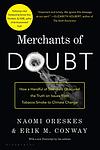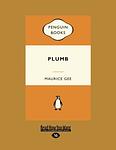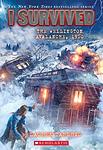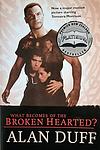The Greatest Bulgarian, New Zealander "Fiction" Books Since 1950
Click to learn how this list is calculated.
This list represents a comprehensive and trusted collection of the greatest books. Developed through a specialized algorithm, it brings together 300 'best of' book lists to form a definitive guide to the world's most acclaimed books. For those interested in how these books are chosen, additional details can be found on the rankings page.
Genres
Countries
Date Range
Reading Statistics
Click the button below to see how many of these books you've read!
Download
If you're interested in downloading this list as a CSV file for use in a spreadsheet application, you can easily do so by clicking the button below. Please note that to ensure a manageable file size and faster download, the CSV will include details for only the first 500 books.
Download-
1. The Bone People by Keri Hulme
"The Bone People" is a complex, emotional novel that explores the lives of three characters - a reclusive artist, a young mute boy, and his adoptive father - in New Zealand. The narrative delves into themes such as Maori culture, love, violence, and isolation while showcasing the struggle of these individuals as they try to form a family unit despite their personal traumas and societal pressures. The book's unique blend of prose and poetry, along with its blend of English and Maori language, adds to its depth and richness.
-
2. A Ballad for Georg Henig by Viktor Paskov
"A Ballad for Georg Henig" is a narrative that explores the life of a Jewish craftsman and violin maker, Georg Henig, in the 18th century. The story is set in Bulgaria and delves into the historical events and cultural dynamics of the time, including the Ottoman rule and the social status of Jews. The protagonist's life is filled with love, loss, and the quest for artistic perfection, all against the backdrop of a society marked by religious and ethnic tensions.
-
3. Faces In The Water by Janet Frame
"Faces in the Water" is a chilling exploration of mental illness, based on the author's own experiences in psychiatric hospitals. The protagonist is a woman who is institutionalized after a suicide attempt and suffers through the dehumanizing treatment of the era, including electroshock therapy. The narrative is a surreal and fragmented reflection of her mental state, as she grapples with her sanity and the inhumane conditions of her confinement. The novel serves as a powerful critique of the mental health system and the societal attitudes towards mental illness in the mid-20th century.
-
4. Natural Novel by Georgi Gospodinov
"Natural Novel" is a thought-provoking and imaginative work that seamlessly weaves together various narratives and perspectives. The book explores the concept of storytelling and its power to shape our understanding of reality. Through a blend of fiction, memoir, and philosophical musings, the author delves into the complexities of human existence, the interconnectedness of life, and the search for meaning in a world filled with both beauty and tragedy. With its poetic prose and profound insights, "Natural Novel" invites readers to contemplate the boundaries between truth and fiction, ultimately challenging conventional notions of storytelling.
-
5. Time Of Parting by Anton Donchev
The novel is a historical drama set in the 17th century in the Rhodope Mountains, exploring the cultural and religious conflict between the Christian Bulgarians and the Ottoman Empire. It follows the story of a Bulgarian village facing the threat of Islamization, as the Ottoman authorities impose a conversion campaign. The narrative delves into the choices and struggles of the villagers, particularly the character of the village leader, who must navigate between resistance and survival. The book examines themes of identity, faith, and the complexities of coexistence during a time of oppressive rule and societal upheaval.
-
6. Tobacco by Dimitar Dimov
The book in question is a historical novel set in the early 20th century, exploring the lives of characters involved in the tobacco industry in Bulgaria. It delves into the personal and political turmoil of the time, focusing on the struggles of the working class and the manipulations of the wealthy elite. The narrative intertwines love, betrayal, and ambition, as it portrays the harsh realities of labor exploitation and the social upheavals leading up to World War II. Through its vivid characters and rich descriptions, the novel offers a critical look at the impact of capitalism and the quest for power on individuals and society.
-
7. The Iron Candlestick by Dimitar Talev
The book is a historical novel set in the early 20th century, focusing on the struggles of the Bulgarian people under Ottoman rule. It follows the life of a young Bulgarian boy from his childhood to his involvement in the national liberation movement. The narrative weaves personal and political threads, depicting the boy's growth amidst the backdrop of cultural oppression, resistance, and the quest for national identity. The story is a poignant exploration of the human spirit and the fight for freedom, showcasing the resilience of a community striving to preserve its heritage and autonomy against the odds.
-
8. The Bells Of Prespa by Dimitar Talev
The novel is a historical saga set in the early 20th century, focusing on the lives and struggles of the Macedonian people under Ottoman rule. It weaves a rich tapestry of characters, both fictional and real, as they navigate the complexities of national identity, cultural heritage, and political upheaval. The narrative delves into the personal and collective challenges faced by the inhabitants of the Prespa region, highlighting their resilience and the impact of historical events on their daily lives. Through the symbolic resonance of the bells, the story captures the essence of a community's enduring spirit amidst the tides of change and the quest for freedom and self-determination.
-
9. Нощем с белите коне by Pavel Vezhinov
The book is a poignant exploration of human emotions and the complexities of life during a difficult historical period. It follows the journey of a man who, amidst the turmoil of war, finds solace and a sense of purpose in caring for a group of white horses. These majestic creatures become a symbol of purity and hope in a world overshadowed by conflict and despair. As the protagonist navigates the challenges of survival and the moral dilemmas posed by the war, the narrative delves into themes of love, sacrifice, and the enduring strength of the human spirit.
-
10. Ilinden by Dimitar Talev
The novel is a historical narrative set in the early 20th century, focusing on the struggles of the Macedonian people under Ottoman rule. It vividly portrays the events leading up to the Ilinden Uprising, a pivotal moment in the fight for Macedonian independence. Through the lives of its characters, the book explores themes of national identity, resistance, and the human cost of revolution. The narrative weaves personal stories with the broader socio-political context, offering a poignant look at the aspirations and sacrifices of a people yearning for freedom.
-
11. Гласовете ви чувам by Dimitar Talev
The book is a poignant exploration of the human condition, set against the backdrop of a small town in Bulgaria during the early 20th century. It delves into the lives of several characters, each struggling with their own personal dilemmas and the oppressive political climate of the time. Through a series of interconnected stories, the narrative examines themes of love, betrayal, and the quest for freedom, all while capturing the cultural and social nuances of Bulgarian society. The characters' innermost thoughts and feelings are brought to the forefront, revealing the universal longing for understanding and the need to be heard amidst the tumultuous changes of the era.
-
12. Самуил by Dimitar Talev
The book is a historical novel that delves into the life and times of a legendary ruler in the early 11th century, focusing on the struggles and resilience of his people against the Byzantine Empire. It portrays the ruler's efforts to maintain the independence and integrity of his kingdom amidst political intrigue, warfare, and cultural challenges. The narrative weaves a rich tapestry of medieval Balkan history, highlighting the ruler's leadership, the valor of his warriors, and the tragic fate that befalls them as they confront the overwhelming forces of a powerful adversary. Through its vivid depiction of historical events and characters, the novel explores themes of patriotism, sacrifice, and the enduring human spirit.
-
13. Plumb by Maurice Gee
In "Plumb" by Maurice Gee, readers are introduced to a small New Zealand town called Waimaru, where a tragic accident occurs, leaving a young boy dead. The aftermath of this event reveals the dark secrets and hidden tensions within the community, as the lives of various characters intertwine and unravel. With beautifully crafted prose and a keen exploration of human nature, Gee delves into themes of guilt, loss, and the complexities of human relationships, creating a gripping and thought-provoking narrative.
-
14. Avalanche by Blaga Dimitrova
The novel explores the psychological and emotional landscapes of its characters against the backdrop of a natural disaster. It delves into the lives of a group of people trapped in a mountain hotel by an avalanche, examining their personal stories, relationships, and the societal structures that define them. As they confront the possibility of death and the breakdown of social order, the characters are forced to reevaluate their lives, revealing the complex interplay of human nature and the forces beyond our control. The narrative weaves together themes of love, betrayal, and the quest for meaning, all while questioning the very essence of existence and human connection amidst the chaos of the avalanche.
-
15. Солунският чудотворец by Fani Popova-Mutafova
The book is a historical novel set in the early 20th century, revolving around the life of a revered monk known for his miraculous healing powers in the city of Thessaloniki. The narrative delves into the complexities of the Balkan Wars and the socio-political turmoil of the era, as seen through the eyes of various characters whose lives intersect with the monk's. As they seek solace and miracles, the story explores themes of faith, hope, and the human struggle, painting a vivid picture of the period's cultural and historical landscape.
-
16. Wolf Hunt by Ivaylo Petrov
"Wolf Hunt" is a historical novel set in the early 20th century in a rural Bulgarian village, where the lives of peasants are depicted with stark realism. The narrative revolves around a group of villagers who are tasked with hunting down a wolf that has been terrorizing their livestock. As the hunt progresses, the story delves into the complex relationships and social dynamics within the community, revealing the struggles, hardships, and resilience of the human spirit in the face of poverty, oppression, and the changing tides of history. The novel serves as a metaphor for the political and social upheavals of the time, exploring themes of survival, morality, and the human condition.
-
17. Badjelly The Witch by Spike Milligan
The book is a whimsical children's story that follows the adventures of siblings Tim and Rose as they search for their lost cow, Lucy. Their quest leads them into an enchanted forest where they encounter a host of magical creatures, including giants, a fairy, and an evil witch named Badjelly who can turn people into sausages with her magic wand. With courage and the help of their new fantastical friends, the children must outwit Badjelly and rescue their beloved cow, embarking on a journey filled with humor, whimsy, and the triumph of good over evil.
-
18. Five Tales by Valeri Petrov
This collection brings together five enchanting stories that weave a tapestry of human experience, emotion, and imagination. Each tale, distinct in its narrative, explores themes of love, sacrifice, courage, and the quest for meaning in a complex world. Through a blend of magical realism and poignant storytelling, the author invites readers into diverse settings where characters face trials, make choices, and embark on journeys that illuminate the depths of the human spirit. With a rich use of language and an acute understanding of human nature, these stories offer a reflective and often heartwarming glimpse into the intricacies of life and the connections that bind us all.
-
19. The Luminaries by Eleanor Catton
Set during the New Zealand Gold Rush of the 19th century, this novel follows Walter Moody, a prospector who stumbles upon a secret meeting of twelve local men who are trying to solve a series of unsolved crimes. As the story unfolds, it becomes clear that the crimes, which include a rich man's disappearance, a prostitute's attempted suicide, and a huge fortune found in a drunkard's cottage, are all interconnected. The novel's complex narrative structure, which uses astrology to organize its characters and events, adds another layer of intrigue to the story.
-
20. Тошко Африкански by Angel Karaliichev
This book is a captivating children's story that follows the adventures of a young boy named Toshko, who earns the nickname "African" due to his deep fascination with the African continent. Set in Bulgaria, the narrative explores Toshko's imaginative and adventurous spirit as he dreams of exploring Africa, its vast landscapes, and encountering its diverse wildlife. Through Toshko's eyes, readers are introduced to themes of curiosity, the joy of discovery, and the importance of pursuing one's dreams, all while celebrating the innocence and wonder of childhood. The story is a heartwarming tale that encourages young readers to explore the world around them with enthusiasm and an open heart.
-
21. We, The Sparrows by Yordan Radichkov
This novel is a poignant exploration of human nature and the complexities of life in a small Bulgarian village, where the lives of the villagers are deeply intertwined with the natural world around them. Through the lens of a sparrow's perspective, the narrative delves into themes of freedom, survival, and the eternal struggle between good and evil. The story is rich with folklore, humor, and philosophical insights, offering a unique and whimsical yet profound reflection on existence and the interconnectedness of all living beings. The author masterfully weaves together the fates of his characters, both human and animal, to create a tapestry of life that is both enchanting and deeply moving.
-
22. Войната на таралежите by the Mormarev Brothers
This book is a satirical novel that delves into the absurdities of war and the human condition through the lens of an allegorical conflict between hedgehogs and other forest animals. Set in a fictional world, the narrative explores themes of power, greed, and the folly of blind allegiance, using the animal kingdom to mirror human society. The hedgehogs, armed with their spines and a fierce sense of independence, find themselves embroiled in a series of skirmishes that escalate into a full-blown war, reflecting on the inherent absurdity and tragedy of such conflicts. Through humor and satire, the novel critiques the senselessness of war and the cyclical nature of violence, making a poignant statement on the universal quest for peace and understanding.
-
23. Ние, мушмороците by Viktor Samuilov
The book is a satirical exploration of the human condition, set in a dystopian society where the ruling class, known as "mushmoroks," exercises absolute control over the lives of the citizens. Through a blend of dark humor and sharp social commentary, the narrative delves into themes of power, conformity, and the loss of individuality, presenting a bleak yet insightful reflection on the dangers of totalitarianism and the importance of resisting oppression. The story, while fictional, serves as a cautionary tale, urging readers to question authority and the structures that seek to diminish the human spirit.
-
24. 18% Gray by Zachary Karabashliev
In this gripping novel, a man finds himself at a crossroads in life, grappling with the loss of his wife and the disintegration of his marriage. In a spontaneous attempt to escape his pain and find meaning, he embarks on a transformative journey across America with a stolen stash of marijuana and a camera, capturing moments of beauty and introspection. As he travels from the East to the West Coast, his road trip becomes a quest for redemption and self-discovery, revealing the complexities of love, memory, and the pursuit of happiness.
-
25. What Becomes Of The Broken Hearted? by Alan Duff
"What Becomes Of The Broken Hearted?" by Alan Duff is a powerful and gritty novel that delves into the lives of a Maori family living in New Zealand. Set against a backdrop of poverty, violence, and racism, the story follows the struggles and triumphs of Jake, a young man desperate to escape the cycle of despair that has plagued his family for generations. With raw and unflinching honesty, the book explores themes of identity, love, and redemption, painting a vivid and haunting portrait of a community grappling with the consequences of a broken heart.
Reading Statistics
Click the button below to see how many of these books you've read!
Download
If you're interested in downloading this list as a CSV file for use in a spreadsheet application, you can easily do so by clicking the button below. Please note that to ensure a manageable file size and faster download, the CSV will include details for only the first 500 books.
Download









